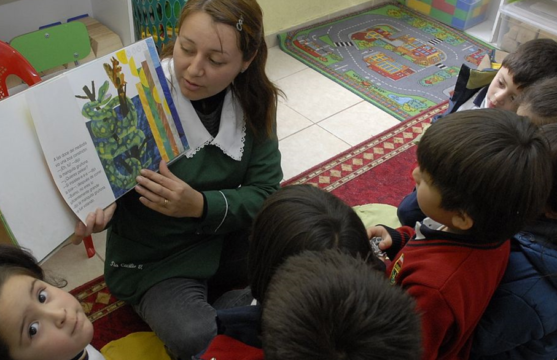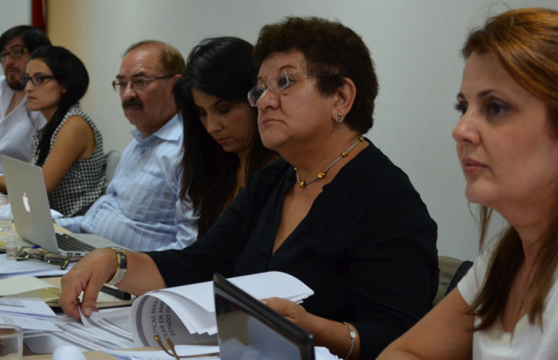
The Good (Education) News from Pakistan
Why Pakistan represents “the biggest education reform challenge” and 12 lessons that are applicable to reform efforts around the globe.
This post is also available in: Spanish
English proficiency is one of the most in-demand skills in our increasingly globalized economy. In a 2014 study, 87% of human resource managers of multinational companies said English language proficiency is important for their employees, while a large proportion also said the need for this skill has increased over time, and that it will continue to grow in the foreseeable future.[i] However, national and international assessments show English proficiency is low throughout Latin America. How can Latin American governments improve English proficiency in order to increase economic competitiveness? Our latest report, English Language Learning in Latin America, analyzes current English language learning policies in ten countries, discusses the current state of English teachers, and reviews innovative programs that seek to improve English proficiency throughout the region. We argue that adjustments at the policy level, well-prepared English teachers, a look beyond the formal education system, and quality data through a strengthening of information systems are essential to improving English language learning in the region.
How well do Latin Americans speak English? While we don’t have nationally representative studies, the test results we do have point to a low level of English proficiency in the region. Latin America as a region performs below the world average in the EF English First English Proficiency Index 2016 (EF EPI) in all age groups.[ii] In contrast, Europe and Asia almost always perform above the world average, and always perform better than Latin America. Moreover, while the proficiency bands include “very high,” “high,” “moderate,” “low,” and “very low,” all but two of the 14 Latin American countries in the study have a score of “low” or “very low.” Argentina is the only Latin American country ranked in the “high” proficiency band, and no country in Latin America is in the “very high” proficiency band. A different evaluation, the Business English Index, which assesses English proficiency in the workforce, ranked all 14 Latin American countries into the two lowest categories of “beginner” and “basic,” which means that while they are able to communicate with simple phrases, they are not able to use English to actively participate in the workplace.[iii]
How skilled are Latin America’s English teachers? This report emphasizes the importance of quality English teachers to improving English proficiency throughout Latin America. Unfortunately, problems exist in both English proficiency of teachers and pedagogical training. As a result, diagnostic tests show teachers have low proficiency levels, and many do not even meet the levels expected of their students. For instance, in Colombia only 43% of teachers reach the required B2 proficiency level.[iv] In Ecuador, a 2012 study showed only 2% reached this level.[v] In Mexico, a study showed 52% of teachers in the sample did not even reach B1 – a lower proficiency level.[vi] Teacher training programs face issues of quality control, including lack of accreditation and lack of a standardized approach regarding entrance or exit requirements. Professional development opportunities also face challenges, including problems of evaluation and continuity. Improving teacher training may take a long-term investment, but quality teachers are vital to having an impact in the classroom on a daily basis.
How strong are Latin America’s English language policy frameworks? Our evaluation of the current English language learning policies in ten countries, including Argentina, Brazil, Chile, Colombia, Costa Rica, Ecuador, Mexico, Panama, Peru, and Uruguay, indicates both advancements and bottlenecks to improving English proficiency. Many countries have well-established legal foundations, including laws requiring teaching of English in schools and plans or strategies for improving ELL. Standards for learning constitute another strong indicator of progress in the region. However, the measurement of student achievement and teacher qualifications present gaps in the policy framework. There is a shortage of student proficiency assessments, making it almost impossible to measure student learning. While teacher education standards exist, few countries assess teacher English proficiency. These issues contribute to the lack of quality data and are significant bottlenecks to improving English language learning.
What programs exist in the region? Many innovative programs exist throughout Latin America to address English language learning. Although individual needs of a country may differ, we discuss three key factors to a successful program: (1) ensuring continuity, (2) developing a strong monitoring and evaluation (M&E) framework that informs adaptation, and (3) addressing the lack of sufficient quality teachers. To ensure continuity, countries need a strong institutional setting with continued policy support. M&E, which requires quality data, allows a country to ensure a program’s effectiveness and allows for changes when necessary. In addressing the lack of sufficient quality teachers, our argument for well-prepared English teachers reaches beyond those trained in country. Several programs, such as Chile’s Programa Inglés Abre Puertas (PIAP) and Uruguay’s Plan Ceibal, look to English teachers outside of their own countries by using blended learning methodologies. This can often provide a short-term solution to quality English teachers, as other countries can often provide native English speakers and those well trained in foreign language pedagogy. Innovative programs, when implemented successfully, have the potential to impact English proficiency levels.
Efforts outside of the formal education system are also important, both to reach a broader audience and enhance traditional learning. English language learners can look to academies, workplaces, or various forms of technology. Unfortunately there is limited data regarding this type of learning. A greater attention to these markets as well as increased data collection is necessary to prove their effectiveness.
Going forward, how can countries improve their English language policies to attain positive results? Our evaluation of English language learning policy frameworks show that adjustments to policies regarding measurement of student and teacher proficiency are necessary to measure both weaknesses and improvements. Given the importance and need of quality English teachers in carrying out these policies at the classroom level, improving teacher training and looking for outside sources of English teachers are both worthwhile efforts. Looking beyond the formal education system can also have an impact on English proficiency, both improving proficiencies of those learning in schools and reaching those outside of the traditional classroom. Finally, strengthening information systems is integral to providing quality data across all aspects of English language learning, whether measuring student test scores, teacher quality, or effectiveness of innovative programs.
Only then will governments be able to stay on track to improve English language learning and actively participate in the global market through an English-proficient workforce.
[i] Educational Testing Service & Ipsos Public Affairs. (2015). Falling through the cracks: Potential pitfalls along the road to English-language proficiency. Available from https://whyenglishmatters.com/.
[ii] EF Education First (2016). EF EPI: EF English Proficiency Index.
[iii] Pearson. (2013). The 2013 Business English Index & globalization of English report. Retrieved from https://static.globalenglish.com/files/case_studies/GlobEng_BEIreport%202013_EN_A4_FINAL.pdf.
[iv] Ministerio de Educación Ecuador. (n.d.b). Fortalecimiento del Inglés. Retrieved from https://educacion.gob.ec/fortalecimiento-del-inglés-prin.
[v] Cumsille, B. & Fiszbein, A. (2015, October). Construyendo politicas docentes efectivas: Pautas para la acción. Inter-American Dialogue. Retrieved from https://www.thedialogue.org/wp-content/ uploads/2015/10/EDU-Cumsille-Fiszbein-Spanish-v31.pdf.
[vi] Mexicanos Primero. (2015). Sorry. Learning English in Mexico. Mexico, DF: Mexicanos Primero, Visión 2030 A.C. Available from https://www.mexicanosprimero.org/index.php/educacion-en-mexico/como-esta-laeducacion/estado-de-la-educacion-en-mexico/sorry-2015/sorry-english
Why Pakistan represents “the biggest education reform challenge” and 12 lessons that are applicable to reform efforts around the globe.
An Interview with Manuel A. Alvarez Trongé and Alejandro J. Ganimian on the quality of education in Argentina.
Important lessons for all Latin American countries.

